Why sheep might be the new cows: Everything to know about the growing sheep milk industry
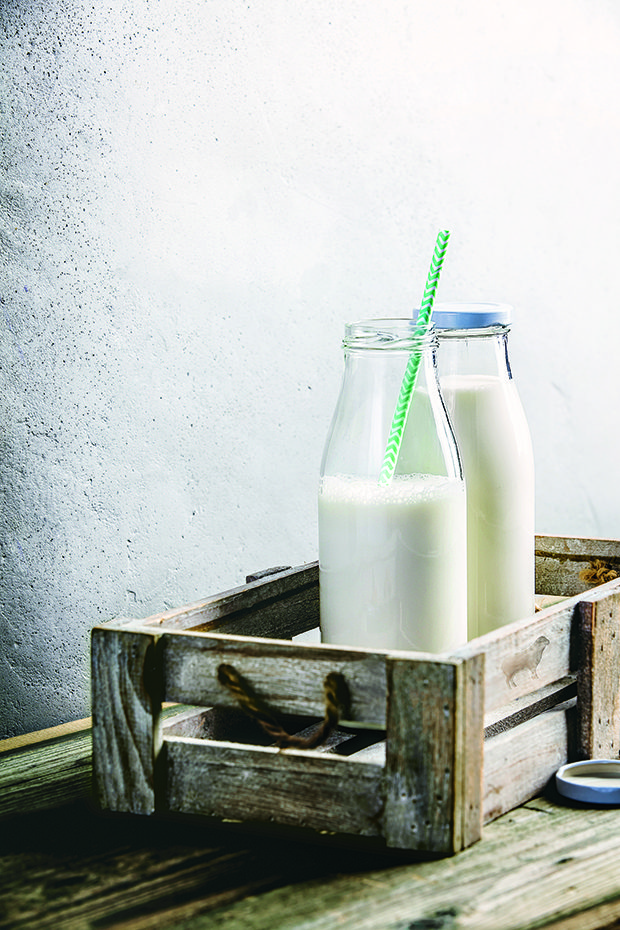
The NZ dairy sheep industry is small, but dedicated artisan cheesemakers and one of NZ’s biggest farming operations are working to turn this niche into big business.
Words Nadene Hall
It has taken almost 150 years for a sheep dairy industry to flock together in NZ. The first mention of it as a possibility was in 1881 in what was then the country’s biggest newspaper, The Clutha Leader. NZ went for sheep meat and wool instead.
Farm scientist Ken Genty tried to raise interest in the 1970s, setting up a milking flock and supplying a local cheesemaker, but that eventually fizzled out.
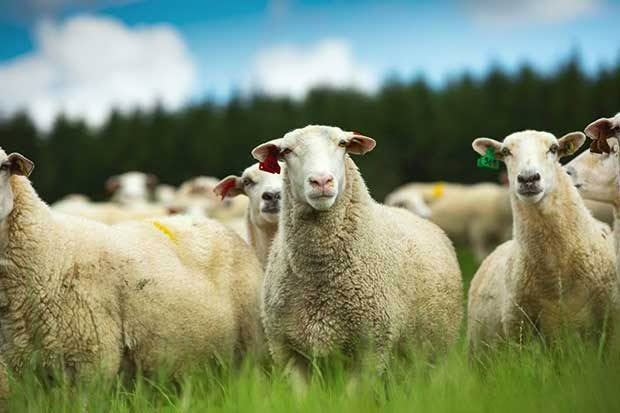
Spring Sheep Co have three farms, running flocks of East Friesian and Lacaune sheep.
A small group of sheep milk enthusiasts around NZ tried again in the mid-1990s. Again, mostly, they failed.
Craig Prichard of Sheep Milk NZ says the challenges for sheep dairying haven’t changed much in 138 years.
“The key underlying problem was there wasn’t a developed market. You put sheep milk cheese in front of people when their conventional cheese is a block of cheddar, and it really doesn’t make sense. Those enthusiasts, in 1995 to about 2003, really went for it, they put a lot of money and sweat and tears into it and to not see anything come of it was, I think, painful.”
There were a couple of success stories, like Neudorf Dairy near Nelson, and Janet and Miles King of Kingsmeade Artisan Cheese in the Wairarapa.
The Kings produce a range of 14 artisan cheeses off their 11ha (30 acre) block and 200 ewes. They began with East Friesians in 1998, but today milk their own Dairymeade sheep, a formally recognised breed that the couple selectively bred up over 20 years.
They sell their cheeses from their own shop, and into dozens of food stores and supermarkets around the North Island. Craig believes the main secret to their sales success is Janet and a lot of hard work.
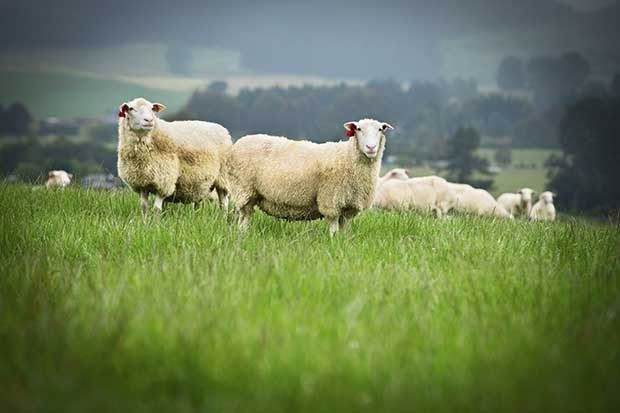
One big reason for his positivity is the involvement of Spring Sheep Co, a partnership between the Government-owned Landcorp and private businesspeople.
“They’re great cheesemakers, fantastic farmers, great location, great story, but Janet has been the key to the business. She had worked in the supermarket sector… she understood how to get the product to the right market at the right time.”
They were helped by a few factors.
“They’ve got great irrigation so they’ve got extended seasons. And they’ve got really good genetics which they’ve improved over the years – they have had the best genetics in NZ for the last 20 years, and they’re now making a return on that.”
This is the NZ sheep dairy industry’s third phase, as Craig calls it. It began in 2015 and is, “hopefully third time lucky,” he jokes. One big reason for his positivity is the involvement of Landcorp (brand name Pāmu NZ). The government-owned farming operation partnered with a consortium of Auckland businesspeople to create Spring Sheep Co, converting three farms into sheep milking units.
“Back in 2015, they bought pretty much every milkable ewe in New Zealand,” says Craig. “We went through that period in 2014 when the bovine milk price hit $3.40, it really went down, and at that point, people were going, ‘oh my god, I’ve got to look at something different,’ and there was a huge amount of interest.”
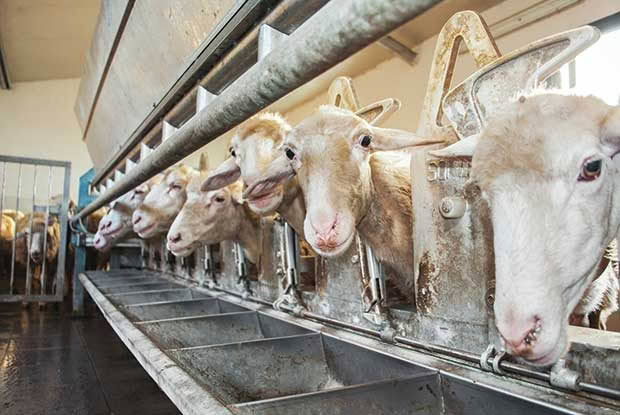
Craig says he’s found people who are attracted to sheep dairy farming have a lot in common
“It’s people who don’t give a damn what others think, people who will really pursue an idea and test it out. The community is probably about 300-400 people, and many are highly skilled, with tremendous knowledge and abilities. That’s the group who is pushing the industry along.”
There are two hotspots for sheep dairying in NZ: Canterbury and Waikato.
“There are about five or six farmers at that small commercial scale in the Canterbury region, milking around 250-300 ewes and supplying cheesemakers in that area,” says Craig. “That’s really the minimum viable commercial size.
“There’s a lot of lifestyle blocks and a lot of people trying to make it work at that smaller scale, some in the 20ha range. The good thing is they’ve clubbed together into groups to supply cheesemakers and that helps with consistency and guarantee
of supply.”
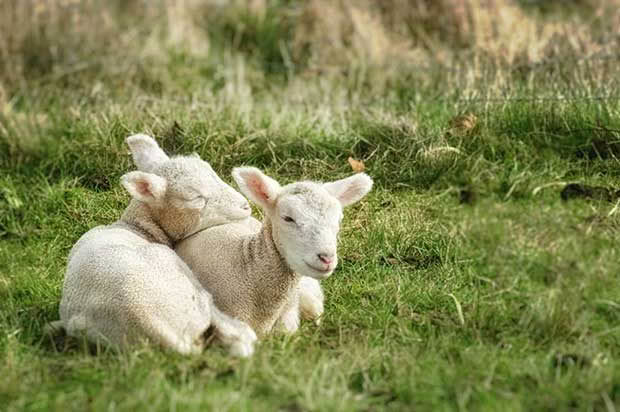 \
\
Craig says you can have a lot of fun running dairy sheep and making products from smaller flocks (under 200 animals), but you shouldn’t expect to earn a living off it.
“You’ve got to have a lot of resilience, a lot of time and energy.”
People like Cathy Oakley and Rod Clarke of Winsam Farm in the Far North are some of the few who have made a success from their small numbers.
“Brilliant cheesemaker, a really good farmer, a fantastic location, a distinctive and important product, and there are people like them up and down New Zealand. Charing Cross (40km west of Christchurch) is another good example.
“But it’s only just commercial in my view – you can make a small living but it’s really hard work. If you’re going to do both milk and make product, you’ve got to be really keen.”
Supermarkets are keen. Craig recently met with reps from the two big chains in NZ and says they like the product and its story. The problem for a small farm and cheesemaking business like Rod and Cathy’s is scale, and continuity of supply. If you can get a product into a supermarket, you must be able to supply it consistently, all year round.
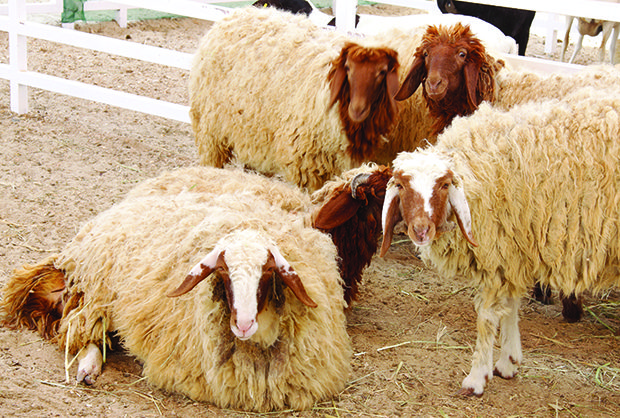
Awassi sheep are a traditional milk and meat breed, with coarse wool and long, floppy ears.
“It’s a big challenge for cheesemakers, since it’s a seasonal business, and it takes an awful lot of effort,” says Craig. “You need to partner with a food business and marketing company. You need to find that partner who will know the key contacts in supermarket sectors, in the high-value food sector.
“Then the consistency of supply must be good. There’s nothing more damaging than not being able to supply a supermarket regularly.”
CRAIG’S ADVICE
Raise lambs for the big sheep companies
Land required: 3-4ha
Lambs come off their mothers at 48 hours old, after getting essential colostrum. But for the next eight weeks, lambs are a big cost for commercial farmers.
“Lamb rearing is going to be a really interesting sideline for people. You’ll take 10, 50, 100, however many ram lambs from the company. Most will give you the lamb and Anlamb (milk powder), and some will buy the lamb back from you three months later.
“It would be quite a neat little business at lifestyle block scale – you have to be on the job to keep lambs healthy for that period though.”
MILKING AT SMALL SCALE
Land required: 25ha or multiple small blocks
Flock size: 100-400
Craig says he’s been advising people with 4ha lifestyle blocks to work together as a group if they want to be involved.
“I’ve proposed to various groups of lifestyle block owners that they buy a mobile milking system if their blocks are close together. Many cheesemakers are looking for milk, they’re all very keen. There is definitely demand out there.
“But you need to have a really clear, well-connected contractual relationship, probably with a cheesemaker or a range
of cheesemakers to make that work.”
Do your market analysis first and be very clear about where your milk is going, says Craig.
“Cheesemakers are really awesome people to work with, but they want the milk at certain volumes and on certain dates, and you’ve got to work with them in terms of what their demands are.”
MILKING AT LARGER SCALE
Land required: 30-40ha minimum
Flock size: 600+
In the Waikato and wider central North Island, Spring Sheep Co and Maui Milk are recruiting farmers.
“They’re appealing to dairy farmers who are at scale (with cows) and have sufficient resources but want a broader portfolio, or they’ve got runoff blocks, or they’ve got environment issues they’re trying to deal with. I’ve got no doubt that over the next four to five years, we’ll add four to five new farms per year in the Waikato area.
“If you’re going larger scale, I would recommend you sell your milk to Spring Sheep Co or Maui.”
BREEDING
The main dairy sheep breeds in NZ until recently were the East Friesian (Germany) and some Awassi (Saudi Arabia).
New genetics imported in 2016 means NZ now also has the high-producing French Lacaune.
Maui Milk has developed what it believes is a world-first composite breed called a Southern Cross, from Coopworth, East Friesian, Lacaune, and Awassi.
Dairy sheep in NZ were typically milking at around 100-150 litres per year, but there have been significant improvements in the last three years. Spring Sheep Co reports its best ewe in 2019 – ‘super Susan’ – produced 503 litres in a 250-day lactation grazing on pasture.
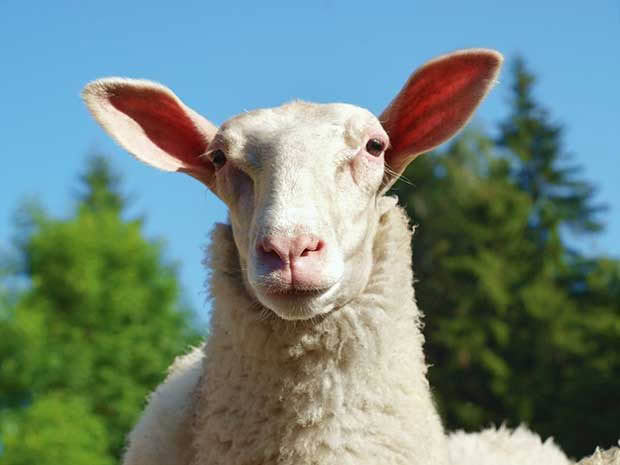
East Friesian is the most common milking breed.
The French average, from sheep kept in barns, is around 400 litres in a 250-day lactation.
That means you’ll be paying around $400-$600 for a first or second-generation Lacaune-cross hogget in lamb, says Craig.
“If she can do 350 litres at $2.50-$3 per litre, that’s a $1000 per animal, and you’ll get their offspring for the next five or
six years, and they’ll go on milking for the next five or six years. There’s significant value.”
As production improves, the bigger companies will sell off older ewes as culls, which could be a cheaper way to get started.
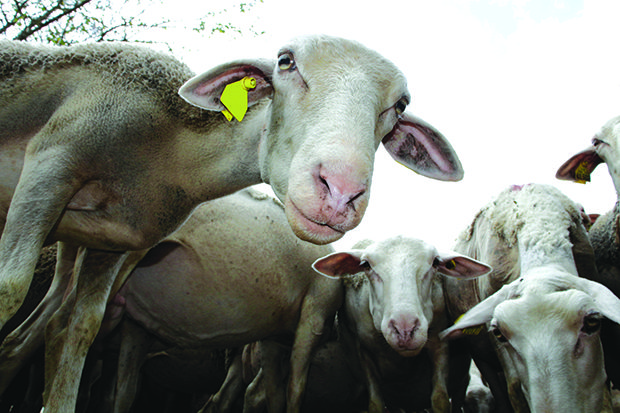
Lacaune is the latest breed to arrive. The traditional French milking breed is renowned for its high production and is being used for cross-breeding.
Ordinary sheep can do extraordinary things over a lifetime, says Craig.
“Miles and Janet King tell this fantastic story of their sheep Yellow 70. That one animal earned more than $15,700 for Kingsmeade over her lifetime. She had 35 offspring, she died at age 14, and produced consistently all the way through.”
When it comes to sheep, breeding statistics are vital, especially if you want to sell animals to overseas buyers, particularly in China and Japan. You need to prove what the animals can produce, even if you don’t want to sell the milk commercially yourself.
“The thing with Rod and Cathy is they have animals that are proven, and that makes a huge difference.
“If you were going to get into the breeding side of it – and it’s not a bad idea – you’d want to milk the sheep three or four times during the season so you could develop a breeding scheme and calculate some breeding values. That way you’ve got a much better line to market.”
4 THINGS TO KNOW ABOUT SHEEP DAIRYING
1. There are now approximately 16 dairy sheep companies in NZ, up from just four in 2014.
2. The national dairy flock is made up of around 20,000 sheep.
3. The sheep milk price is around $16/kg of milk solids, compared to Fonterra’s forecast cow’s milk price of $6.75/kg of milk solids for the year to September 2019, and goat milk ($17/kg).
4. AgResearch is studying nitrogen leaching from sheep dairying – it’s estimated dairy sheep could leach up to a third less nitrogen than dairy cows.
7 REASONS WHY SHEEP MILK IS SO VALUABLE
• rich, creamy milk with a slightly sweet taste and no aroma
• twice the solids of cow milk, at around 18-19%
• up to twice as much protein and calcium as cows’ milk
• higher in all 10 essential amino acids than cows’ milk
• richer in many vitamins and minerals than goat and cow milk
• fat-protein ratio makes great cheese
• possibly easier to digest, which is attractive to Asian markets where milk sensitivity is common
GLOBAL SHEEP MILK INDUSTRY
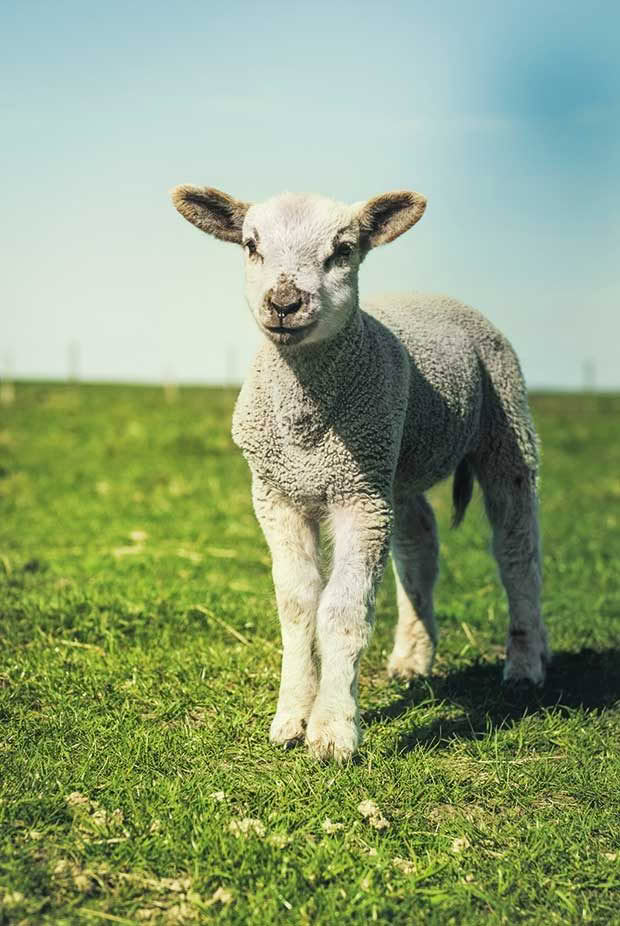
Value of the global milk sheep industry: US$8 billion
World’s largest consumers of sheep milk production: USA (over half the global production of sheep milk cheese)
Largest producers of sheep milk products (2014): China, Greece, Turkey
New Zealand’s large sheep milk companies:
Producer: Blue River Dairy
Products: Infant formula (made from imported sheep milk)
Export markets: China
Producer: Maui Sheep Milk
Products: Whole milk powder
Export markets: China
Producer: Spring Sheep Co
Products: Probiotic milk powder, whole milk powder, chewable tablets
Export markets: Taiwan, Vietnam, Malaysia
Source: Sheep Milk Market Assessment, KMPG/Canterbury Development Corporation
MORE HERE:
NZ firm Spring Sheep Co find success exporting alternative dairy to Asia
Love this story? Subscribe now!
 This article first appeared in NZ Lifestyle Block Magazine.
This article first appeared in NZ Lifestyle Block Magazine.
